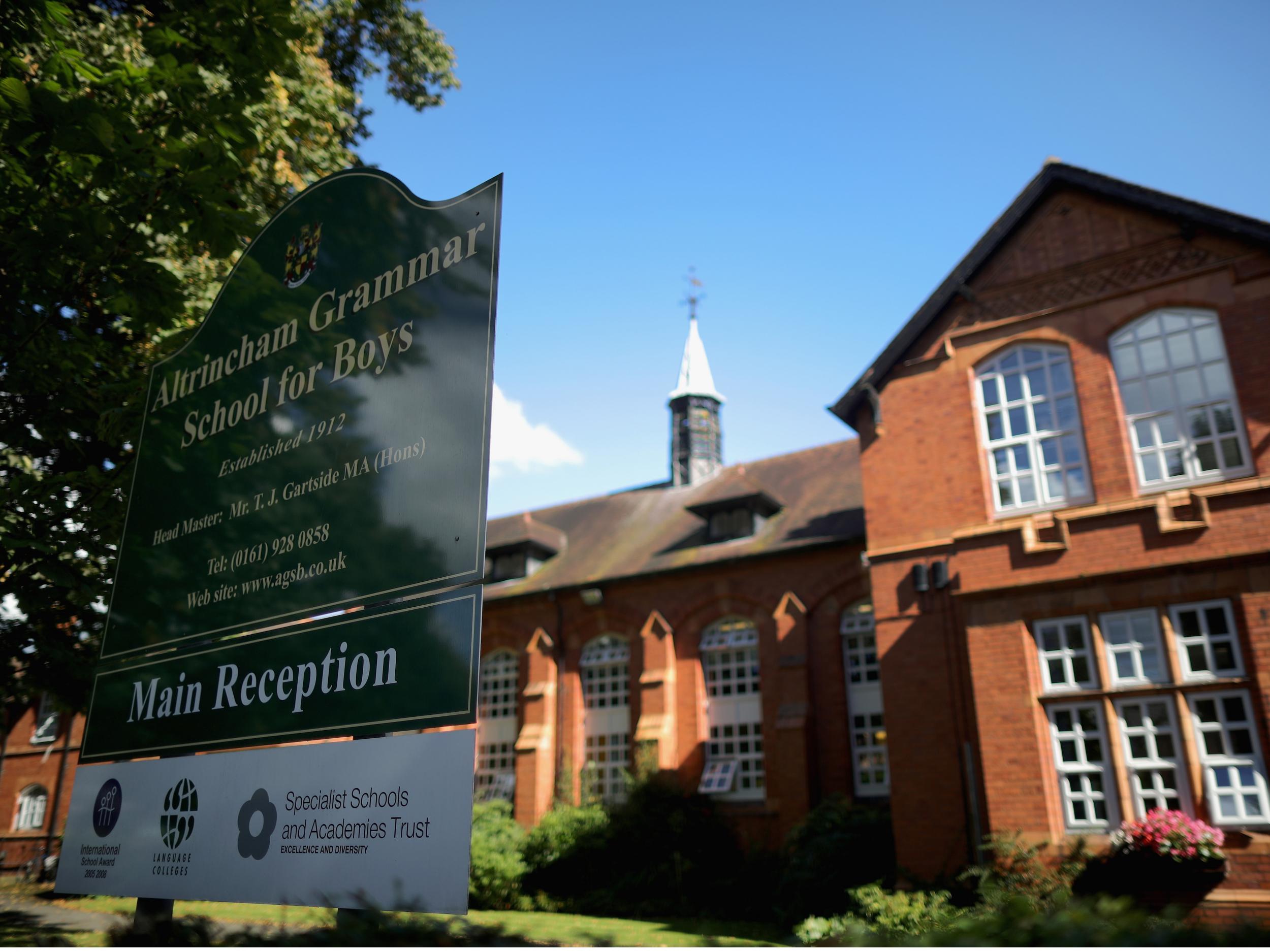Theresa May’s grammar schools plan based on ‘no evidence’, warns biggest study of existing schools
Exclusive: Former schools minister David Laws says the Prime Minister needs to go ‘back to the drawing board’ with proposals

Theresa May has been warned that her controversial plans to create more grammar schools will backfire because children from poor families will fall further behind those who secure places in them.
In a major setback for the Prime Minister’s flagship domestic policy, the largest study of England’s 164 grammar schools by the independent Education Policy Institute, found “no evidence” that expanding the network would improve overall standards. Its warning that the Government’s proposals could widen the “attainment gap” between rich and poor pupils will increase the chances of them being defeated by MPs or peers. Up to 40 Conservative MPs are said to have doubts.
In an interview with The Independent, David Laws, the former Liberal Democrat schools minister who chairs the think tank, urged Ms May to “go back to the drawing board”. He warned: “There are very substantial risks that more selective places would make matters worse. As a grammar schools system expands, there are more losses [measured by GCSE results] for people who can’t get in, particularly pupils from poor families. That is very worrying for the Government. There is a real risk that this could end up being an unproductive cul-de-sac.”
Mr Laws said the Prime Minister’s proposals were likely to have a “negative impact” on social mobility, dismissing her argument that they would increase it as “weak”.
The former Cabinet minister accused Ms May of believing a “basic fallacy” based on her own grammar school education, and insisted that policy decisions should be based on evidence rather than “hunches or prejudice”. He warned that her proposals would not help the struggling white working class families she has championed since becoming Prime Minister. If in-work families were given priority for places at the new grammars, then the very poorest pupils would miss out, he said.
Mr Laws said it would be better to spend political capital and money on successful non-selective schools like the sponsored academies set up by the Blair government, because their 50,000 disadvantaged pupils get much better results than the 4,000 in grammars. Earlier intervention before school age or in primary schools is the best way to bridge the rich-poor divide, as leaving it until 11 is too late, he argued.
The institute’s study concluded that more grammars could bring small gains for the pupils who attend, but have a negative overall effect by widening the attainment gap between children from rich and poor families. It found that 60 per cent of this gap arises before the age of 11 – by when disadvantaged pupils are already 10 months of learning behind other children.
However, it rejected Jeremy Corbyn’s claim that grammars “depressed” overall educational achievement. It concluded that selective schooling has “no overall impact, either positive or negative”.
The study found that 97 per cent of grammar school pupils get five A*-C grades at GCSE, against a national average of 57 per cent in all state-funded schools. But it judged that this high performance is driven by the very high “prior attainment” and demographics of grammar school pupils.
The gap between children on free school meals attaining five A*-C GCSEs (including English and Maths) and all other children is wider in selective areas (34 per cent) than in non-selective ones (28 per cent). Grammars attract a larger number of high attaining, better off children from other areas and on average, their pupils travel twice as far as those attending non-selective schools.
Pupils eligible for free school meals in wholly selective areas who do not go to a grammar perform worse than the national average. The report warned: “An expansion of grammar schools in areas which already have a large number of selective schools could lead to lower gains for grammar school pupils and small attainment losses for those not attending selective schools – losses which will be greatest amongst poor children.”
The institute found that high attaining pupils perform just as well in high quality non-selective schools as in grammars. “Labour’s sponsored academies programme has had a more positive impact on the attainment of disadvantaged pupils compared with the present grammar school system,” it said.
A Department for Education spokesman said: “We know grammar schools provide a good education for disadvantaged pupils, helping to all but eliminate the attainment gap between disadvantaged pupils and their peers, and we want more pupils from lower income backgrounds to benefit from that.”
He added: “Our proposals are not about recreating the binary system of the past, which is what this report is based on. Our new approach would ensure any new selective schools prioritise the admission of pupils from lower income households or support other local pupils in non-selective schools to help raise standards. We are clear that relaxing restrictions on selective education can and should be to the betterment, not at the expense, of other local schools. This is about creating more good schools in more areas, giving every child the opportunity to fulfil their potential.”
Join our commenting forum
Join thought-provoking conversations, follow other Independent readers and see their replies
Comments
Bookmark popover
Removed from bookmarks